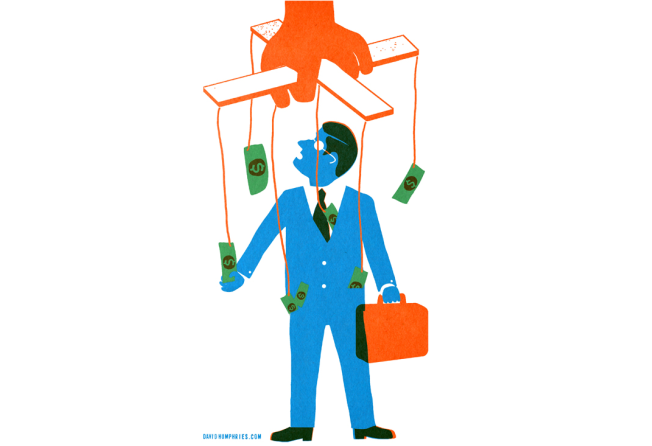Dual-class share structures would be ill-advised in Hong Kong
Robert Boxwell says dual-class share structures overly favour hi-tech types and don't protect investors adequately,and the Hong Kong stock exchange would be ill-advised to allow them

When historians look back 100 years from now to explain how capitalism went off the rails, Exhibit A will be a list of events from the past 20 years: the pump and dump of inflated dotcom shares in the 1990s before the bubble burst; hedge funds and spendthrift governments collapsing currencies and obliterating the savings of millions in the Asian financial crisis; Enron et al; rampant insider trading in markets everywhere; Wall Street bankers bringing the world to its knees in 2008-09, then making their shareholders pay billions to keep themselves out of prison; Libor cheats; foreign-currency cheats; tax cheats; and an oil market manipulation case currently winding its way through a New York court … It's easier than you think.
Another of these regular screwings of investors - dual-class shareholding structures - has crept into the United States markets and somehow, irrationally, the Hong Kong Exchanges and Clearing is feeling less competitive because it doesn't allow this particular kind of screwing - which it calls one of the "currently acceptable standards in the marketplace".
Much of the hand-wringing has taken place since Hong Kong lost the Alibaba IPO to New York last year because it wouldn't lower its standards and allow Jack Ma and a cabal of fellow insiders to run the company without oversight. Looking out and seeing more mainland companies planning to list with dual-class structures and feeling Hong Kong ought to be their natural home, HKEx is considering changing the rule. In a concept paper, it notes that 21 of the 30 mainland companies that have listed in the US with dual-class shareholdings are information technology companies, and it cites four examples, including Alibaba.
It sounds like a race to the bottom. Is there any honest, sane person who really believes investors need less protection, not more, from investment bankers and the self-proclaimed genius founders of tech companies?
The heart of capitalism, as every investment banker running an IPO knows, is matching businesspeople and their ideas with institutions and savers who have the cash to back them. The bond between them has always been an agreement that the businesspeople will be held accountable for the privilege of using other people's money. Dual-class shareholding structures, in which insiders control the company without holding a majority of the shares, break this bond. "Thanks for your money, now shut up," is the effect.
Let's be honest. The only reason investors accept structures like this is because they think getting in on the IPO of a huge-growth tech company will give them a big financial pop after the listing, which is often true. But after that, the hard business of running the company still exists, and shareholders have no say in it.
Would Apple would have survived the Steve Jobs of the 1980s? He didn't go willingly in 1985 when he was 15 years away from stumbling across the company-saving iPod. In the early '90s, the Mac - as one of Apple's senior managers characterised it in a popular Harvard Business School case - "was on a glide path to history".
The notion that today's tech geniuses have some kind of special knowledge or culture-building ability is pure hubris. Many of today's "disruptive" (or amazing!) tech businesses coming out of Silicon Valley and mainland China are copycats of established hi-tech business models aimed at low-tech industries. They make their money selling advertising or skimming commissions, and their success comes from maximising their network effects before their competitors do. There's little amazing about that. The tech world has understood network effects since Bill Gates encouraged developers to write apps for its operating systems while Jobs kept the Mac closed. Everyone gets it now.
Apple was never worth as much under Steve Jobs as it is under Tim Cook. If today's genius tech founders become less genius tomorrow, other people can run their businesses.
So the rationale for letting these guys break one of the cardinal rules of capitalism is nonsense. In its IPO prospectus, Alibaba holds out its special "culture" as the reason it needs no shareholder oversight. But every successful young company has a special culture, a large part of which is often the willingness to work until midnight for a huge future payday.
And Alibaba seems to be an especially poor precedent for dumbing down Hong Kong's shareholder protection standards. Since its IPO, its share price has run up … and down. Using it as an example of commission-generating high-volume trading, as a recent column did, is silly; the high-volume trading since November is investors getting out of the stock. Its share price is down by 30 per cent since then, in a long, steady decline, punctuated by a 9 per cent drop on one day in January on the news that China's State Administration for Industry and Commerce has been investigating it since before its IPO, something that many complain was inadequately disclosed in Alibaba's prospectus.
The reaction of Alibaba's "culture" was to attack the regulator. Nice.
So 100 years from now, when historians point out that Hong Kong didn't follow declining US market standards, it will be an important footnote. Since beginning a concerted crackdown on insider trading in 2008, Hong Kong has been in the news often as a market focused on protecting investors. Allowing dual-class share structures for some IPO profits and trading commissions would be a step backward - a step Hong Kong shouldn't take.
Robert Boxwell is director of the consultancy Opera Advisors